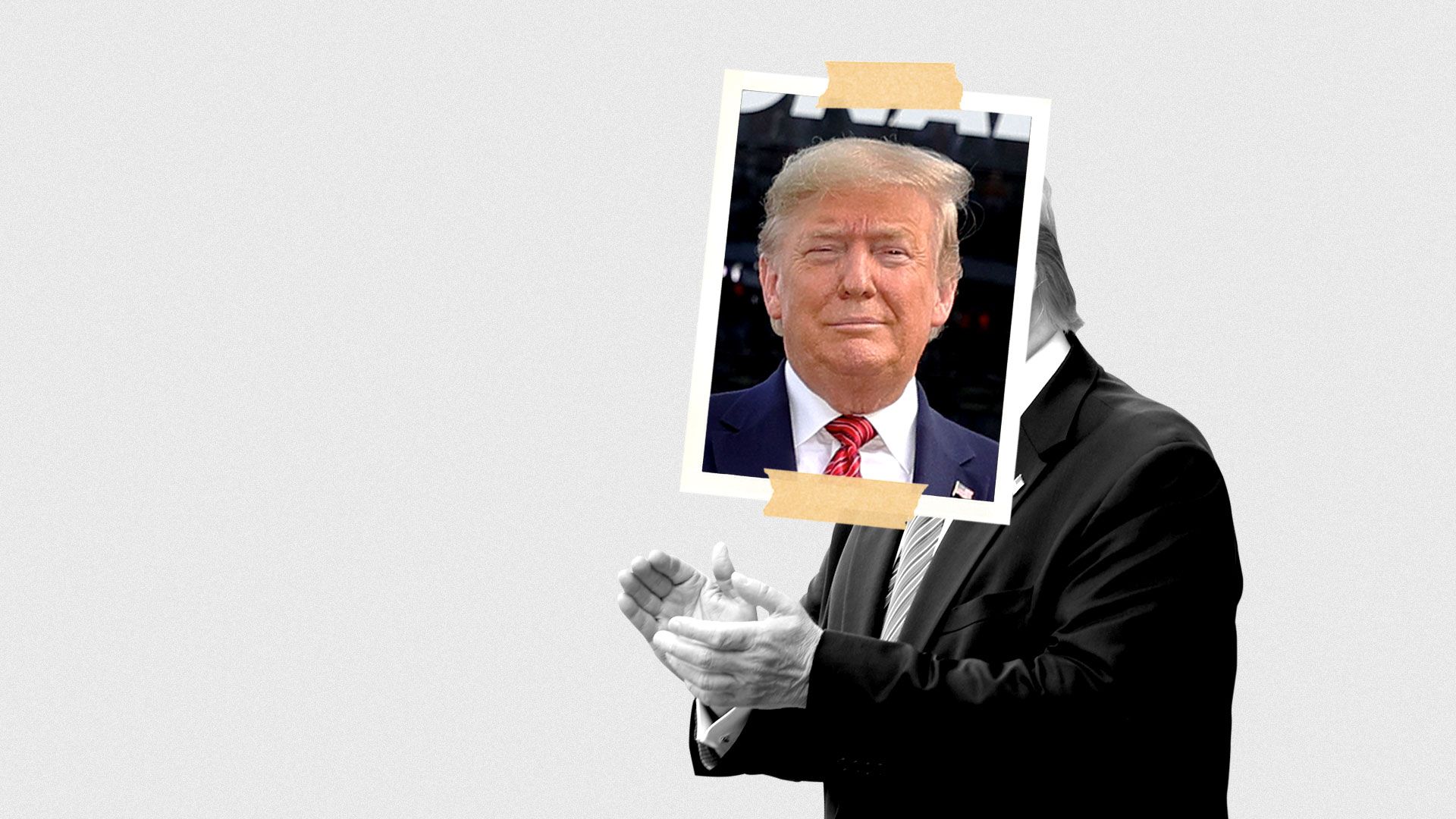The new not-normal: The Trump state
Add Axios as your preferred source to
see more of our stories on Google.

Photo Illustration: Eniola Odetunde/Axios. Photos: Chris Graythen/Getty Images
Donald Trump changed how to run for president. Next, he changed the Republican Party. Now, he’s changing the presidency and the boundaries of executive power.
In the past week, Trump has purged internal dissenters, imported loyalists, pardoned political and financial criminals and continued a running commentary on live Justice Department criminal cases — despite an unprecedented public brushback from his attorney general.
- And in what could prove to be the week's most consequential move, Trump yesterday named Rick Grenell, ambassador to Germany and one of the most dependable Trump family allies, as acting director of national intelligence — a sensitive job overseeing 17 U.S. spy agencies. The DNI has access to all the nation's secrets, and helps shape what a president sees and knows.
Why it matters: Trump does everything bigger and bolder than any predecessor dared — and all nakedly in the open, fearing no consequences from a Republican Party he fully commands.
- Other presidents lamented disloyal servants, but rarely purged them en masse and in public. Trump told staff after his impeachment acquittal that he felt surrounded by "snakes" and "bad people" he wanted ousted.
- Other presidents plugged loyalists into key jobs — but rarely made that the prerequisite. To run the powerful presidential personnel office, Trump last week tapped John McEntee, 29, who has no experience in staffing governments, and was fired by his former chief of staff John Kelly — but is a favorite of the family.
- Other presidents pardoned criminals — but never in a big batch in the middle of a re-election race, after getting lobbied on TV. Trump's 11 pardons and commutations this week included Rod Blagojevich, a Democrat and former Illinois governor whose wife, Patti, had appealed to Trump on Fox News. Blagojevich told cameras that he's now a "Trumpocrat."
- Other presidents pressured their Justice Department, but never so nakedly and publicly. Trump, asked this week if he agreed with Attorney General Bill Barr that White House tweets made it impossible to do the job, said: "I do agree with that. I think that’s true. ... I'm allowed to be totally involved. I'm actually, I guess, the chief law enforcement officer of the country."
Between the lines: Rush Limbaugh said Trump called this week with a bit of advice after the radio host mocked the idea of Pete Buttigieg at fall debates — "gay guy kissing his husband on stage, next to Mr. Man, Donald Trump":
- "Rush, I just got to tell you something. Never apologize."
The bottom line ... One sign of how extraordinary this is: Trump has pushed Barr — who has a maximalist view of presidential power, and is sympathetic to Trump's view that career prosecutors have overreached — to publicly plead with him to stop, and even make it known he's considering resigning.

